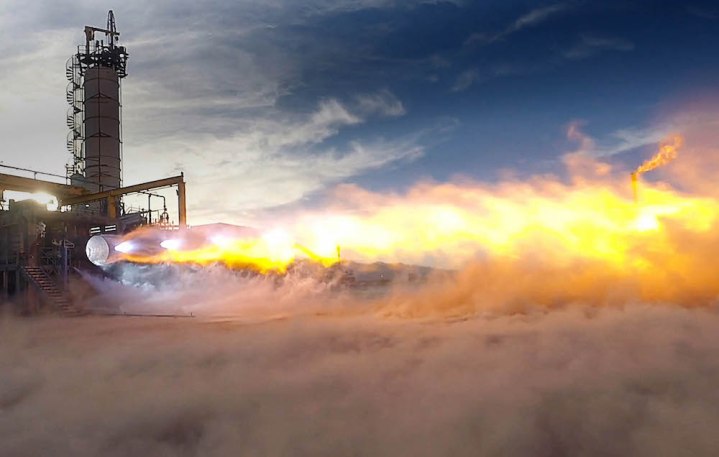
A Blue Origin rocket engine exploded during a ground-based test last month in a setback for the spaceflight company owned by Jeff Bezos.
The incident occurred at a Blue Origin test facility in West Texas on June 30 but has only just come to light, CNBC reported.
The explosion involved one of the company’s BE-4 engines that was reportedly going to be used for the second mission of United Launch Alliance’s yet-to-fly Vulcan Centaur rocket, which will replace ULA’s Atlas V and Delta IV Heavy.
CNBC sources who saw a video of the incident said the rocket exploded about 10 seconds after it started firing, wrecking the engine and causing damage to the test stand infrastructure.
A Blue Origin spokesperson confirmed to CNBC on Tuesday that it “ran into an issue while testing Vulcan’s Flight Engine 3.” It said that no one was injured, adding that it already has a reasonable idea about what caused the explosion and is now “working on remedial actions.”
The company said that it has another stand in West Texas available for engine tests, and insisted it’s still in a position to meet its engine delivery commitments for the rest of 2023 and “stay ahead of our customer’s launch needs.
However, we won’t know the full impact of the incident on Blue Origin’s operations until it’s fully analyzed what went wrong and resolved the matter. It’s worth keeping in mind, too, that one of the main reasons for testing is to surface anomalies, and though an explosion will have been unexpected, it’s better for it to happen at the testing stage than on launch day.
This latest incident follows another stumble by Blue Origin in September 2022 when its New Shepard suborbital rocket suffered a failure while in flight.
This is the vehicle used for its tourism trips to the edge of space, though no one was inside the crew capsule when the rocket exploded in midair. To ensure the safety of any passengers, the flight system ejects the capsule in the event of a major malfunction, and in this case, the emergency escape system performed as expected.
Blue Origin engineers have since been looking into the cause and are planning to launch an uncrewed test flight in the coming weeks. If the flight is a success, New Shepard could begin carrying paying passengers again in a few months from now.

